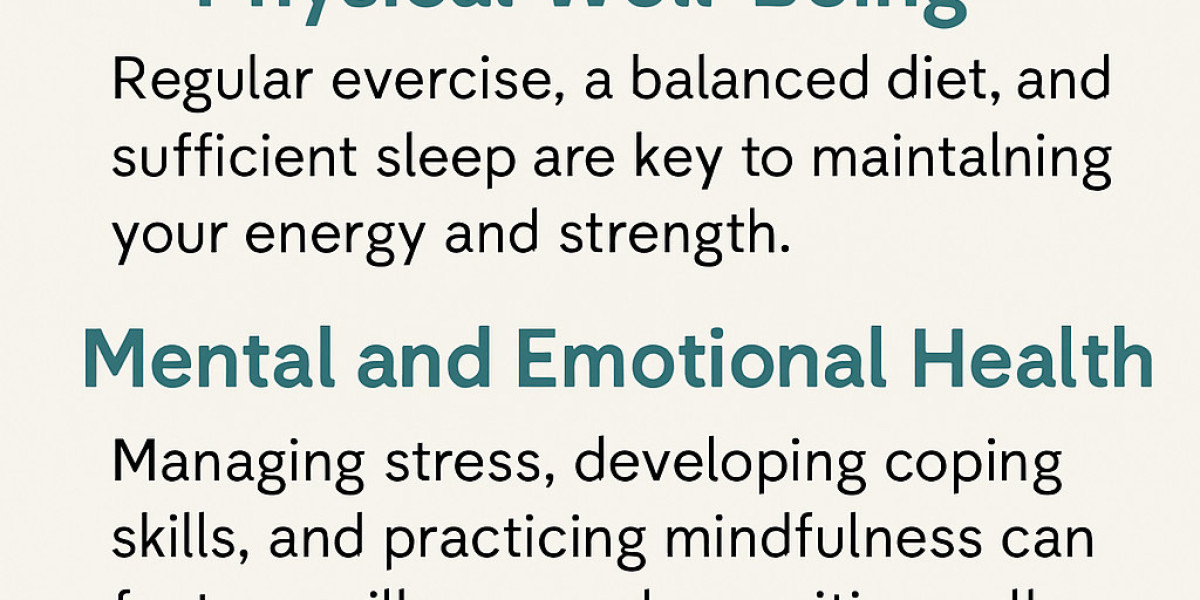1. Physical Health: Building a Strong Foundation
a. Nutrition Matters
Eating a balanced diet rich in proteins, healthy fats, and vitamins fuels the body and enhances cognitive function. Prioritizing whole foods over processed options can significantly improve energy levels and overall health.
b. Exercise Regularly
A mix of cardiovascular workouts, strength training, and flexibility exercises keeps the body in optimal shape. Sports, dance, or even daily walks can make staying active fun and sustainable.
c. Quality Sleep
Adequate rest (79 hours per night) is crucial for concentration, memory, and overall mood stability. Establishing a sleep routine and limiting screen time before bed enhances sleep quality.
2. Mental and Emotional Well-being
a. Managing Stress
Practicing mindfulness, meditation, and time management can help reduce stress levels. Taking breaks and engaging in hobbies also contribute to a well-balanced mind.
b. Building Self-Esteem
Surrounding oneself with supportive people, setting realistic goals, and celebrating small achievements fosters confidence and self-worth.
c. Seeking Help When Needed
There is no shame in asking for help. Counseling, talking to trusted friends, or using mental health resources can make a huge difference in overcoming emotional struggles.
3. Social and Relationship Health
a. Cultivating Healthy Friendships
Building relationships based on trust, respect, and mutual support creates a strong social network that boosts mental health.
b. Navigating Romantic Relationships
Communication, honesty, and setting healthy boundaries are key to maintaining positive and meaningful romantic relationships.
4. Digital Wellness and Technology Use
a. Managing Screen Time
Balancing online and offline life is crucial. Setting limits on social media and prioritizing face-to-face interactions enhance real-world connections.
b. Using Technology for Growth
Leveraging online resources for education, skill-building, and career opportunities can be a powerful way to enhance personal and professional development.
5. Financial Health: Laying the Groundwork for Stability
a. Learning Financial Literacy
Understanding budgeting, saving, and investing early in life creates a strong financial future. Setting savings goals and tracking expenses build healthy money habits.
b. Planning for the Future
Exploring career options, developing skills, and seeking mentorship help in making informed financial and professional decisions.
Conclusion
Youth health is about more than just physical fitnessit encompasses mental, emotional, and social well-being. By adopting healthy habits early, young people can set themselves up for lifelong success and happiness. Start small, stay consistent, and enjoy the
journey to a healthier, more fulfilling life.












